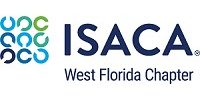Board Member and Committee Member
Expectations and Guidelines for Communication
The Information Systems Audit and Control Association (ISACA) is a professional organization charged with the task of forwarding and promoting the profession of Information Systems Auditing, Security and Governance. The ISACA mission states: “Through worldwide leadership, enhance recognition of IT governance, control, security and assurance through the advancement of standards and practices, education and certification.” The West Florida Chapter of ISACA is charged with the hands-on task of promoting and carrying out this mission within Western Florida.
The Board of Directors for the West Florida chapter is the immediate mechanism for leading and carrying out the Association mission at the chapter level. The Board of Directors is a working Board. As such, all Board members are to be actively involved in the execution of the chapter mission. This involvement is demonstrated in two manners. First, Board members are chapter leaders who demonstrate this leadership by being active participants in chapter-sponsored events. Second, Board members are responsible for leading and executing the various events and vehicles (newsletter/web site) that support the Association mission and provide value to the membership.
The remainder of this document will further outline expectations for Board members and provide guidelines for Board member behavior.
PARTICIPATION:
As noted in the above paragraphs, the Board of Directors is a working Board. Minimum expectations for participation are as follows:
Attendance Expectations:
- Board meeting participation: Board members are expected to participate (either by attending in-person or calling in by conference call) in 75% of Board meetings per year (the number of board meetings to be held will be determined at the Board planning session in July/August timeframe).
- Annual Planning Meeting: Unless otherwise excused, Board members are expected to attend the annual Membership and Planning Meeting which occurs after the Annual General Meeting, usually in July or August.
- Chapter Sponsored Events: It is an expectation that Board members will attend a minimum of three chapter-sponsored events (i.e., educational or social events) per year (this is in addition to participation in the meetings listed above). It is desired that Board members will attend more than two events per year.
Functional Expectations:
- All members of the Board of Directors are expected to be actively working members on one of the functional Board committees (i.e. Education, Communications, CISA/CISM Review, etc.) They are expected to regularly participate in said committee meetings and to actively carry out tasks to meet committee objectives.
ACCOUNTABILITY and DELIVERABLES:
The carrying out of the chapter mission requires the involvement of many individuals, and consequently, results in many interdependencies. In order for the machine to run smoothly, Board members must follow through on their specific commitments. When one Board member misses commitments and/or deadlines, it not only sets a poor example for other Board members, but it also may prevent others from carrying out their specific tasks. This is a volunteer Board, but we must all be conscientious with regard to carrying out and taking ownership of that to which we commit. A volunteer does not mean optional.
- Meeting Deliverables: It is imperative that when Board members commit to executing specific tasks/deliverables within a certain timeframe and that every effort is made to meet this commitment.
- Self-Monitoring: While the Secretary, President, or Committee Chair may maintain an Action Items List, it is the individual Board members responsibility to keep track of their own promised deliverables/commitments. They should be prepared to carry out those commitments without the badgering of a fellow Board member.
- Expectation Management: There will certainly be times when a promised deliverable/commitment cannot be met. In these instances, it is imperative that the individual promising this commitment actively inform the appropriate chapter leader or Chair so that the expectation can be managed and a new target date set, or that the chapter leader or Chair can delegate the task to another individual.
- Completed Task Notification: Outside of tasks that occur at regular intervals (i.e. committee reports for Board Meetings), once a Board member has completed a promised deliverable, they should notify the appropriate chapter leader or Chair.
- Committee Reports and other Board Meeting Documents: Committee reports, motions and other documents/reports to be presented at Board meetings should be prepared in a timely manner and presented per the process outlined by the current chapter President.
COMMUNICATION:
Perhaps the most crucial element to the smooth execution of the chapter mission, yet one of the most difficult to achieve is good communication. The following are some guidelines to help enable productive communication.
General Guidelines:
- At all times, fellow Board members and chapter members should be treated with
- You should feel free to speak your mind, but comments should not be personalized. If you have issues with a particular individual, you should speak to that person directly (offline — not during a Board or Committee meeting) and, if necessary, bring the issue to the attention of the President (or if the issue involves the President; the VP or another Board member should be involved).
- Be objective with your comments; focus on tasks and actions, not the people who do them.
- Take criticism objectively. In the process of carrying out chapter business, there will be times when chapter leadership may be critical of performance in certain areas. Focus on your tasks and actions, not on people making comments about you (it’s not about you personally!)
- Healthy Debate: Creating policy and processes and executing the chapter mission will at times require making tough decisions. There will inevitably be disagreements and different points of view. We don’t have to agree about things, it’s OK to disagree. A debate is good; dissention is not. State your point of view freely and clearly. Respectfully listen to other points of view. Do not try to talk over other people or attempt to win your argument by bullying. If the majority does not end up sharing your point of view, be content that you represented your point of view to the best of your ability. Do not sulk and do not take it personally.
- As much as possible, try to see that your comments are well organized and thought through. Try to avoid making long winding speeches that may wander off the track and cover many extraneous points. Try to stick to the matter at hand.
- Do not feel that you need to get in the last word. What is important is that all points of view are represented and heard.
- Do not hold back, if you feel strongly about something (or even if you feel weakly about something), SPEAK UP!
- If something inappropriate is said, please speak up and make note of it. If a discussion is veering off course, please speak up and get us back on track.
- Feel free to be polite. Please and thank you are always welcome and appreciated.
- Be responsive! If a Board or committee member is seeking your feedback, make every attempt to respond in a timely manner. Your lack of responsiveness could be preventing that individual from executing their tasks.
- While debate and differing opinions are encouraged, once the Board has arrived at a decision, Board members are to support that decision and to present a unified front before the membership.

